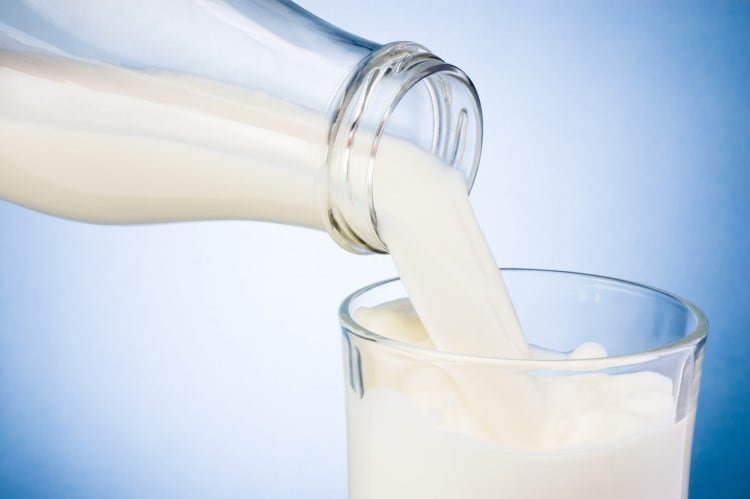Dairy industry trade bodies and individuals have asked the Food and Drug Administration (FDA) to eschew the idea of introducing what they refer to as ‘misleading labels’, arguing that allowing plant-based milk alternatives to formally adopt dairy descriptors would only serve to confuse customers about the nutritional value each product can offer. But some food manufacturers - including Danone North America - and other organizations have argued that consumers are able to distinguish between dairy and alternatives, including on nutrition, while also stating that prohibiting the use of dairy terms when used in this context would violate the First Amendment.
Dairy industry bodies have also complained about the lack of enforcement action taken by the FDA with regards to the current standards of identity for milk and have called on the federal agency to adopt standards of identity for plant‐based beverages or enforce existing regulations for imitation products in order to solve the problem.
‘Woefully insufficient’
The National Milk Producers Federation (NMPF) said the FDA proposal ‘falls woefully short of ending the decades-old problem of misleading plant-based labeling using dairy terminology’ but supported the federal agency’s initiative to introduce nutrient statements, designed to highlight any significant nutritional differences between dairy milk and a plant-based alternative.
“For far too long, plant-based beverage manufacturers have blurred well-defined standards of identity to inappropriately and unfairly capitalize on dairy’s nutritional benefits while FDA has ignored its enforcement obligations,” said Jim Mulhern, NMPF president and CEO. “FDA’s draft guidance is an encouraging first step toward promoting labeling transparency in the marketplace, but it’s not enough. Our comments outline a solution to the misleading labeling practices existing in the marketplace today, and provide clear, truthful labeling options for marketers of plant-based beverages.”
NMPF, which also endorses the DAIRY PRIDE Act, said it had “never asked for an outright ban on the use of dairy terminology’ on plant-based alternatives, stating that those claiming otherwise ‘simply do not have their facts right’. “NMPF has instead consistently asked for everyone to follow the rules and provide transparency and fair factual disclosure to consumers to assist them in making informed purchasing decisions. Current regulations have long permitted the use of the name of a food being imitated, such as ‘Imitation Vanilla Extract’ or ‘Imitation Crab Meat’. It can and has been done for decades.”
The organization also argued that the draft guidance ‘fails on two important legal grounds’, stating that the proposal ‘rewrites and contradicts FDA’s existing regulation on misbranding and imitation labeling… and second, it violates the US Constitution’ as imitation labeling requirements and misbranding provisions are included in an existing federal act. “While NMPF does not believe that the FDA intended to violate the APA, nor the US Constitution, it will have done precisely that should this guidance be issued in final form,” NMPF stated.
The body also suggested that should the FDA adopt policies that codify how dairy descriptors are used on non-dairy products, then the agency should make nutrient statements ‘mandatory and have them prominently placed front-of-pack’.
Dairy Farmers of America (DFA) also criticized the federal agency for failing to enforce the established definition of milk, an act that has ‘caused confusion’ and allegedly ‘allowed consumes to be misled into consuming products of lesser nutritional value than milk’, the co-op said.
On behalf of the organization, DFA chief food safety officer Robert Byrne argued that FDA ‘must not permit the use of dairy terms on non-dairy products’ unless the agency is prepared to enforce existing regulations around imitation labeling or establish standards of identity for such products “in order to protect consumers and promote honesty and fair dealing”.
DFA also proposed the voluntary nutrients statements should be mandatory and that manufacturers should include ‘a quantitative statement on the back of the package...that shows the differences identified’. “A voluntary recommendation will only create more confusion as some products may bear the comparison and others will not,” Byrne commented. “This certainly will not lead to less confusion in the marketplace.”
Similar sentiment was shared by Farm Women United, who said the FDA would ‘stand indicted by its own words’ if it continued to allow plant-based alternatives to use dairy terminology. “We expect and demand that the FDA uphold truth in labeling. Milk comes from mammals. The alternatives are beverages, drinks, or juices.”
Organic Valley also conveyed its disappointment with the lack of enforcement of current standards by the FDA, calling this ‘a regulatory public policy failure’ and arguing the proposed naming obligations and voluntary nutrient statements for milk alternatives were ‘woefully insufficient, with no record or example of how such an approach would actually be adopted by brands selling the aforementioned [products] or how such statements might be perceived by consumers’.
Other dairy industry voices, including from the Alabama Farmers Federation, echoed the calls to the federal agency to not allow the use of dairy descriptors ‘unless products follow proper use of imitation terminology’, while the National Dairy Council highlighted the ‘inconsistency’ between the FDA draft guidance and its consumer protection initiatives and highlighted that the health benefits of dairy foods consumption ‘go well beyond their nutrient density’.
Healthy Eating Research (HER), a national program of the Robert Wood Johnson Foundation based at Duke University, said it backed the FDA’s proposed guidance, calling plant-based milk alternatives labeling ‘an important issue to address, especially as the consumption of plant-based milk alternatives continues to rise’. In a comment submitted to the federal agency, HER said: “HER supports FDA’s proposed guidance for industry to include nutrient disclosure statements on the labels of plant-based milk alternatives... In addition, HER strongly urges FDA to consider the requirement of a disclaimer that explicitly states if the product is not nutritionally the same as dairy milk.”
HER added it had conducted several rounds of focus groups with parents and health providers prior to issuing its recommendations. “We found in all groups that there was much confusion about the nutritional content of plant-based beverages and how each unique type measured up to cow’s milk,” the organization said. “Of particular concern was the finding that many parents discussed replacing cow’s milk in young children’s diets with a plant-based alternative and yet did not realize the key nutrients their young child may be missing from their diet. Thus, it is critical that consumers have the nutrition information readily available on the nutrition label to help them compare these products to milk and make informed dietary choices. In the case of children, consumers need this information to make nutritional decisions that will support healthy growth and development.”
Potential for ‘cumbersome labeling’
Danone North America, one of the largest US dairy processors which also manufactures a range of plant-based dairy alternatives, said in its submission to the FDA that ‘a front-of-pack nutrient statement or nutrient comparison is unnecessary and inconsistent with existing FDA regulations’ and ‘will overcrowd the label and potentially create consumer confusion, conflicting with other messaging adding more consumer confusion’. The company also highlighted that while plant-based milk sales have increased, dairy remains a much larger segment with 90.5% household penetration compared to plant-based milks (42.2%).
The company also stated that households that purchase plant-based also buy dairy, and plant alternatives are often used in different ways to traditional milk. “In summary, plant-based milks are used intentionally by consumers: many households choose to buy both plant-based milks and dairy milk to accommodate different eating occasions and preferences, and to receive a variety of benefits. In addition to dairy, plant-based products are a part of existing Federal Nutrition Policy and Dietary Guidance that help increase dietary diversity and address the needs of a diverse population,” Danone North America stated.
The company suggested that requiring plant-based dairy manufacturers to include the base ingredient type in the statement of identity could be ‘misplaced’, which for products that use a blend of ingredients (e.g. oat and pea) ‘could result in cumbersome labeling without giving meaningful information to consumers’. The firm offered an example with cracker manufacturers, who are not required to disclose what grains their product is made of. “While we agree with FDA that an appropriate statement of identity could include the primary base or base-blend (e.g., soy, oat, walnut), we recommend clarifying that companies have flexibility to use a common or usual name or appropriately descriptive term in accordance with FDA regulations, particularly for more complex blends and innovations, and further, that it is not necessary to include a full list of plant-based ingredients, including those added for fortification and/or technical benefits,” the company said.
Danone North America also opposed the introduction of voluntary nutrient statements and questioned the FDA’s reasoning to single out the category: “We are not aware that FDA has set out a similar suggestion for disclosure of nutritional differences for any other category of foods,” said the company. “Countless foods are regularly used as alternatives for others, so the potential scope of the precedent proposed here by FDA is massive.”
The company also said that nutrients that were not considered of public health concern – protein, magnesium, vitamin B12 and A, phosphorus and riboflavin – should not trigger a voluntary nutrient statement. “Under FDA’s own regulations based on the relative importance of these nutrients in the American diet, products do not need to be labeled with the amounts of these nutrients as a matter of course,” the company said, adding that even if a consumer sees that a plant-based alternative has lower magnesium levels than dairy, it would be impossible to compare the product to dairy equivalents which don’t typically include this information on-pack.
The proposed voluntary statement ‘presents risks of having inconsistent or duplicative consumer communication’, the company concluded.
If voluntary statements are adopted however, Danone proposed that only specific nutrients, for which milk is shown to be a key source, should trigger their inclusion on-pack, and only when the plant-based alternative ‘offers significantly less of the specific nutrient’ than present in dairy milk. The manufacturer also wants the voluntary nutrition statement to be placeable anywhere on pack, such as near the nutrition facts panel.
Arla Food Ingredients, another dairy major that also produces dairy alternatives, took a firmer stance with regards to FDA’s proposal for dairy descriptors however, urging the agency to reconsider its position. “The use of the term ‘milk’ in plant-based milk alternatives has an observed influence on the consumers’ perception, contorting its identity and misleading consumers,” said the co-op. “As a response to this concern, FDA recommends a voluntary nutrient statement to be used....The voluntary nature of this statement is of great risk, since it would allow those plant-based milk alternatives that deviate most from milk in its nutritional content to avoid its use, and therefore produce a misleading identity of the term ‘milk’ in the most crucial cases.”
‘No justification for an unprecedented, unique, disparaging disclaimer’
Proponents in favor of the use of dairy terms on dairy alternative products argued adopting 'milk' for use on plant-based products would be in line with what consumers were accustomed to. In its comments to the FDA, the Vegetarian Resource Groups – an NGO dedicated to promoting vegetarianism - said results of a survey it commissioned in 2020 suggested that 92% of US adults ‘recognized that soy milk and dairy milk were different’. “This supports our view that use of ‘milk’ to describe a plant-based milk will not be confusing to consumers.”
The NGO also said it hoped for guidance to be issued on the labeling of hybrid products, such as those that contain dairy protein or are similar to dairy protein in structure. “Clear labeling is needed to help protect people with food allergies who may be misled by product labels containing statements not clearly informing consumers that the products are based on animal DNA,” said the body. “Examples of this type of misleading label statement include “animal-free” or “vegan.” We propose that food allergen information on these products should be in readable type and on a readable background, not only in the ingredient listing but also along with any other declarations on the labels which may be confusing to the consumer related to the presence of the allergen.”
The VRG also questioned whether consumers would understand the meaning of the voluntary nutritional labels. “Although the stated concern that prompt the recommendation to include an additional nutrient statement on plant milk packages is underconsumption of certain nutrients…, the effect of the inclusion of this statement does not appear to have been rigorously tested. Will consumers understand it? Will it result in a change of behavior? With 90 percent of the US population not meeting recommendations for the Dairy Group, many cultures not drinking milk, and more than half of purchasers of plant milk purchasing it because it is better for the environment, a package statement that a plant milk product contains less of a nutrient than dairy milk seems unlikely to result in behavioral change,” the organization argued.
Striking similar sentiment, the Almond Alliance, which advocates for the US almond industry, stated that using ‘milk’ as a term referring to plant-based beverages had been ‘well-established’ in the consumer marketplace, ‘terminology which has become part of the common vocabulary’.
Similarly to some voices from the dairy sector, the trade body also questioned whether using nutrients identified in USDA’s FNS fluid milk substitutes chart was the most effective way to inform consumers of the differences between dairy and alt dairy, suggesting instead that the DGA-identified nutrients – such as calcium, vitamin D and potassium – should be used instead.
“While the FNS chart is more comprehensive, in order to better address the potential public health concern identified in the DGA, we believe that limiting the voluntary statements to only those nutrients of public health concern would be more appropriate to best achieve its stated objective of helping consumers make informed dietary choices,” the organization stated.
The Plant Based Foods Association, a trade body that represents plant-based food companies, had submitted a 19-page statement in which it rebukes the need for nutrient disclaimers, questions the FDA’s proposed use of the school nutrition standards that plant-based alternatives must meet, and suggests that the FDA had relied on ‘questionable research and empirical evidence’ that informed its recommendation for voluntary nutrient statements and naming obligations.
The trade body argued that ‘there is no justification for an unprecedented, unique, disparaging disclaimer’ highlighting that plant-based products were low in nutrients that were not of public health concern, such as magnesium or protein. Of the nine essential nutrients contained in milk, only calcium, vitamin D and potassium have been identified as such within the Dietary Guidelines for Americans, yet the FDA recommends manufacturers to highlight nutritional differences related to magnesium or protein content, the body said.
“Incredibly, the FDA is admittedly obligating plant-based milk producers to use Nutrient Disclaimers even where no public health concern is raised. If nutrients do not raise public health concerns, there is certainly no justification for an unprecedented, unique, disparaging disclaimer alerting consumers to lower levels of them that the nutrient disclaimers proposed by the FDA relate to nutrients ‘that admittedly are not of public health concern’, adding that only potassium, vitamin D and calcium have been identified as such within the Dietary Guidelines for Americans.
The trade body alleged that substituting cow’s milk for plant-based alternatives ‘would not lead to increased deficiencies of these nutrients’ and that consumers could refer to the nutritional facts panel for information. “No other food product is subject to similar ‘recommendations’ because, among other reasons, existing regulations sufficiently convey necessary information to consumers,” said the organization. “The nutrient disclaimers would just serve to confuse consumers and undercut their informed choices.”
“The nutrient disclaimers require more than simply factual, accurate and uncontroversial information. The implication that cow’s milk is healthier than plant-based milk is subjective – and likely to confuse consumers, who for other subjective, but accurate, reasons think plant-based milk is healthier.”
To browse all comments submitted to the FDA, search for docket FDA-2023-D-0451 via regulations.gov.




